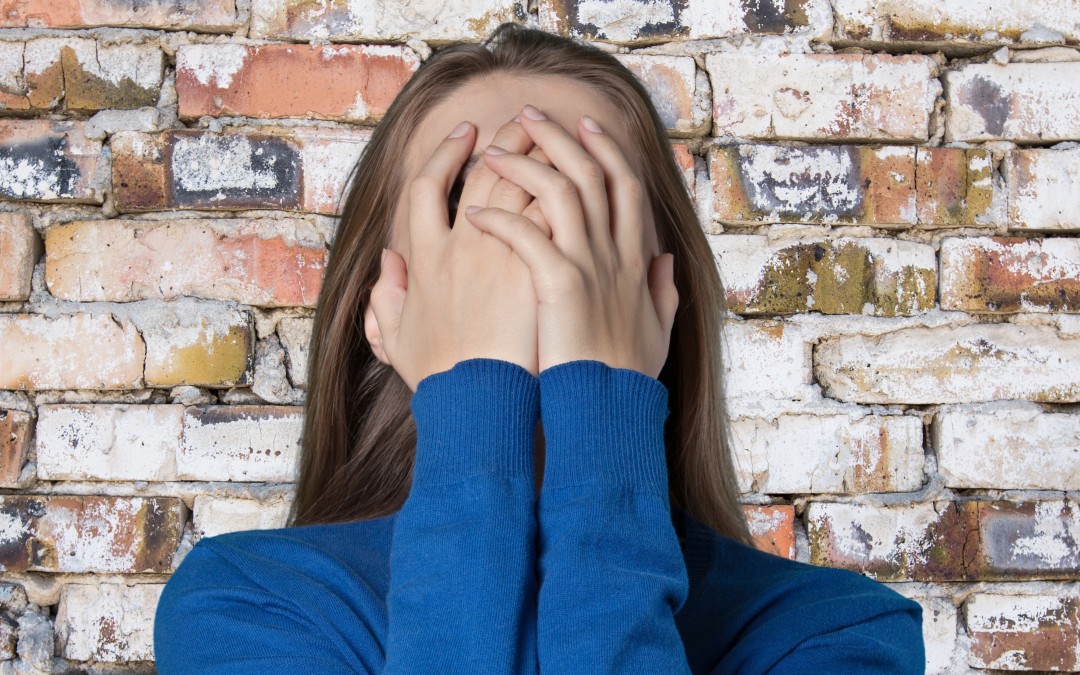It’s the new slogan of the anti-trafficking movement. It’s powerful for those who understand it. And for those that don’t … it’s written off along with everything else they don’t understand. Supporters respond to those that don’t get it by saying it more and saying it louder. But there’s a problem. It’s not just a slogan. For survivors of trafficking, it has to be so much more than a slogan.
I have intellectually known for quite some time that my abuse and trafficking was not my fault. If someone asked me whose fault it was, I could quickly point to my parents, my pimp and the other pedophiles who paid the money. I stay current with journals and news on this topic and I can spout out statistics and stories to anyone who will listen (and I do).
But this intellectual understanding is not enough for a survivor to recover from this trauma. When we are children, we take on the shame of the trauma. We take it on because we are told it is our fault, but the shame is too much for us to process with our young minds. So, we store it for later.
I stored my shame all over my body (because there was so much of it), but it mostly landed in my hips and shoulders. It sat there for many years. I dealt with a host of physical problems from muscle and joint pain to reproductive problems and inflammation. I also dealt with intense anxiety. I found medical and alternative solutions to deal with these issues because I was still able to function. The only time it became unbearable was during my pregnancy with twins which added forty extra pounds of weight on my poor hips. Otherwise, I just managed to tuck my shame away in the far corners of my body.
Don’t get me wrong, I know that it would have turned in to something far worse as I aged. I am sure it would have become arthritis, fibro-myalgia, an auto-immune disease or cancer, but it had not progressed to that point. I was lucky in that respect. I started my recovery work at 34. These diseases can affect people much younger than 34.
It takes a lot to convince a person to take on the shame that they have stored. Some part of us believes it is not possible to survive it. For a child, who does not have the capacity to understand shame, that may actually be true. But for an adult, the hardest part of the shame is the pain of defending against it. Of course, we don’t know that. That’s why we keep defending. That’s why we say that we don’t blame ourselves, but deep down inside, we still do. And unfortunately, the “deep down inside” part runs our lives.
It is hard to describe what the shame physically feels like when it comes back. It feels a little bit like butterflies in the pit of the stomach, but so much worse. The real issue for me was the emotional aspect of shame. When I first started this process, I didn’t know what emotions were. I had repressed them along with the memories. I cried at sad movies sometimes, but when life got particularly difficult, I numbed out. I made all decisions based on logic. There was no heart component. There was no intuition. Of course, it doesn’t take a genius to figure out how bad my decisions were. I could justify almost anything with logic.
When I first started this process, I had no idea that I would feel all of the emotions I did not allow myself to feel as a child. It took me a couple of years to figure out that the emotions did not reflect my current life situation. I would lay in the yard on a perfect sunny day with my beautiful toddlers crawling all over me, and I would feel like I wanted to kill myself. Huh? How does that make any sense?
I remember when I realized that I could detach the repressed emotions from my current life. I no longer had to search for a reason why I felt the way that I did. I knew it was old stuff. I was able to detach from the emotions, but still allow myself to feel them. And it made feeling them so much easier. Don’t get me wrong. It was still awful. It just helped to know that I was no longer experiencing the events that triggered them in the first place. And as an adult, I had the capacity to feel them without falling apart. But the key to my recovery was that I took the time to feel them. They must be felt.



*sigh*
So much of what you say resonates with me, Elisabeth. I don’t doubt for a second that my trauma let to the current health problems I’ve got right now– back problems (sciatica, spinal stenosis, other neuropathy), diabetes, and obesity– besides the cPSTD and the worsening of bipolar symptoms.
Of course, I wouldn’t say they *directly* caused all these, but I do think they left me more vulnerable. (My father is in similar straits, but with more obscure neurological illnesses.)
Thank you for your comment. The physical repercussions of trauma are often overlooked, but most survivors are struggling with significant health issues. We have to give it attention.